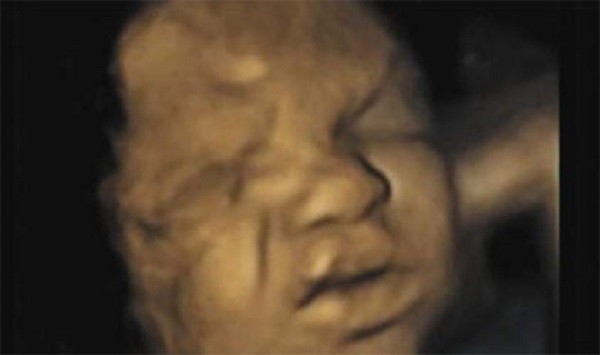Ohio Gov. John Kasich vetoed a controversial bill Friday that would prohibit abortions after an unborn baby’s heartbeat is detectable.
The Republican governor, who vetoed similar legislation in 2016, said he rejected the bill based on the unlikelihood of it succeeding in a court challenge.
The AP reports Kasich explained Friday that he believes the bill would be struck down as unconstitutional before it could save any lives. He also said the legal challenge would cost taxpayers money.
“As governor I have worked hard to strengthen Ohio’s protections for the sanctity of human life, and I have a deep respect for my fellow members of the pro-life community and their ongoing efforts in defense of unborn life,” he said in a statement. “However, the central provision of Sub. H.B. 258, that an abortion cannot be performed if a heartbeat has been detected in the unborn child, is contrary to the Supreme Court of the United States’ current rulings on abortion.
“As the losing party, the state of Ohio will be forced to pay hundreds of thousands of taxpayer dollars to cover the legal fees for the pro-choice activists’ lawyers,” Kasich added.
The bill passed the state legislature earlier this month. House Bill 258 would ban most abortions in Ohio by prohibiting abortions after an unborn baby’s heartbeat is detectable. Research suggests a baby’s heartbeat may begin as early as 18 days after conception, but it typically is not detectable until around six weeks. The bill also would allow abortion practitioners to be charged with a felony for violations.
It is not clear if the state legislature has enough votes to override Kasich’s veto. Cleveland.com reports pro-life lawmakers would need at least two more votes in the state Senate to pass the bill without the governor’s support.
Click Like if you are pro-life to like the LifeNews Facebook page and receive the latest pro-life news.
State Rep. Christina Hagan, a lead sponsor of the bill, previously said she wants the bill to pass now more than ever because of the likelihood of the U.S. Supreme Court upholding it, ABC News 22 reported earlier this month.
“Now is absolutely the time to pass the Heartbeat Bill,” she said, previously. “We need every minute and hour that we can get to send it to the right court makeup.”
Meanwhile, abortion activists blasted the bill as “dangerous.” In a statement earlier this month, Planned Parenthood Advocates of Ohio CEO Iris E. Harvey claimed it would restrict a woman’s “right to make personal health care decisions before she even knows she’s pregnant.” She neglected to mention that that decision involves the taking of another human being’s life, the woman’s own unborn baby.
Harvey also called House Bill 258 “unconstitutional,” which suggests the likelihood of a legal challenge.
Kasich did sign a second pro-life bill Friday that prohibits brutal dismemberment abortions. In these common second-trimester abortion procedures, nearly fully formed unborn babies are torn limb from limb while their hearts are beating.
Heartbeat bills have been met with skepticism in the past, even by some pro-life groups, because of pro-abortion legal challenges. State taxpayers have been forced to pay pro-abortion groups’ legal fees after losing other abortion cases.
North Dakota and Arkansas passed heartbeat bills several years ago, but federal courts struck down both laws. The Eighth Circuit Court of Appeals said the following about their ruling on the six-week ban: “Because there is no genuine dispute that (North Dakota’s law) generally prohibits abortions before viability — as the Supreme Court has defined that concept — and because we are bound by Supreme Court precedent holding that states may not prohibit pre-viability abortions, we must affirm the district court’s grant of summary judgment to the plaintiffs.”
The U.S. Supreme Court refused to hear an appeal of the cases in 2016.
There is more hope that the new conservative-majority U.S. Supreme Court may consider an abortion ban, but it is difficult to say if it would for certain. Some legal scholars have speculated that the new conservative court would be more likely to consider cases that gradually chip away at Roe v. Wade – such as a dismemberment abortion ban – rather than reverse it completely.








